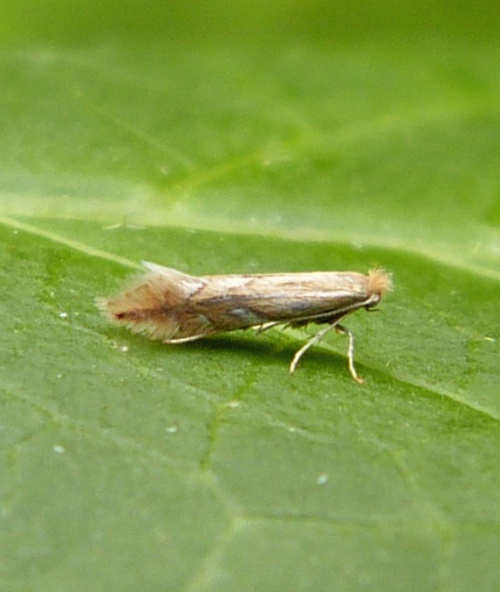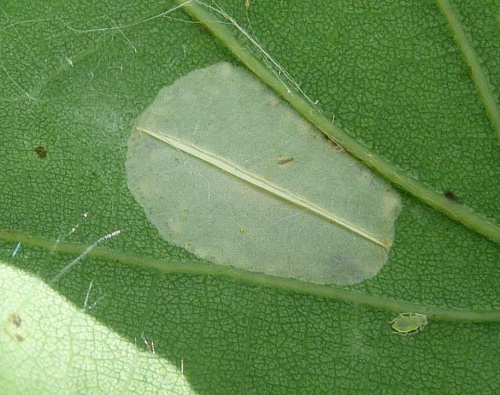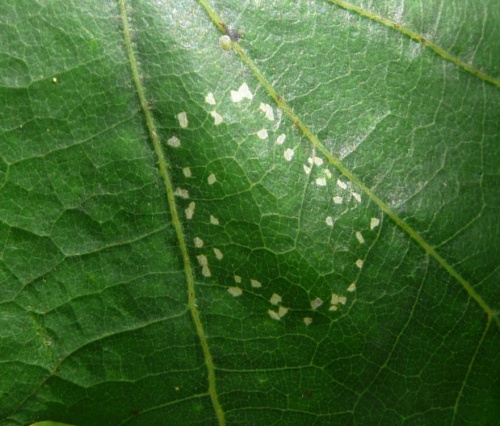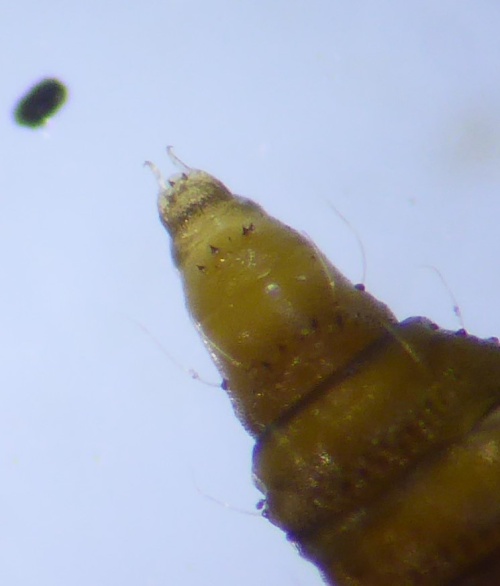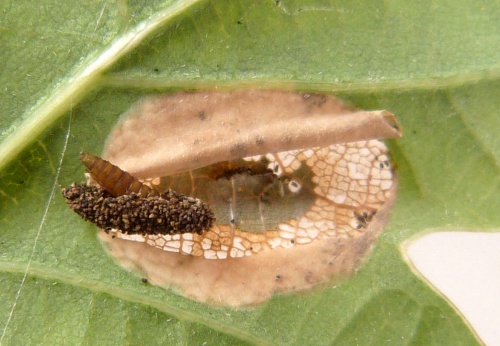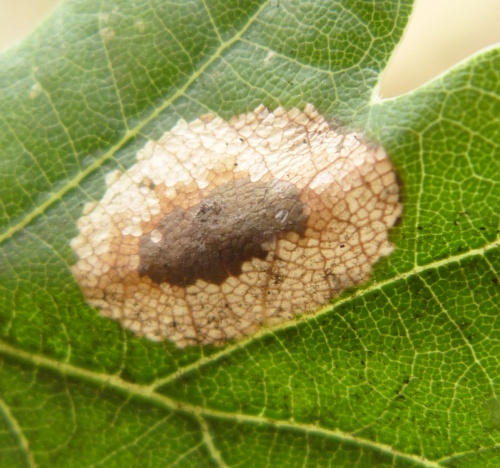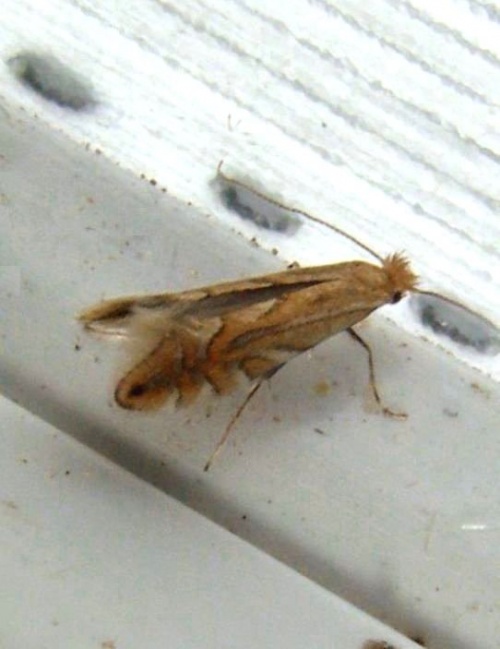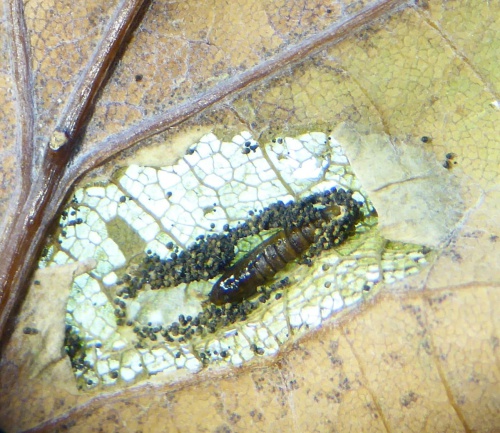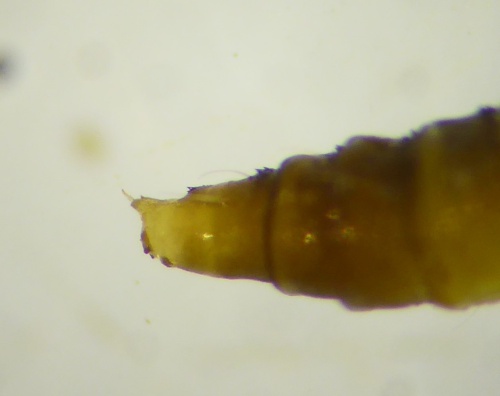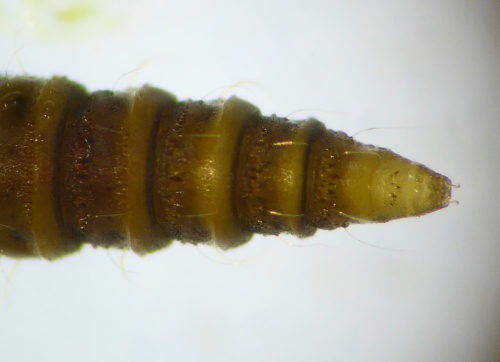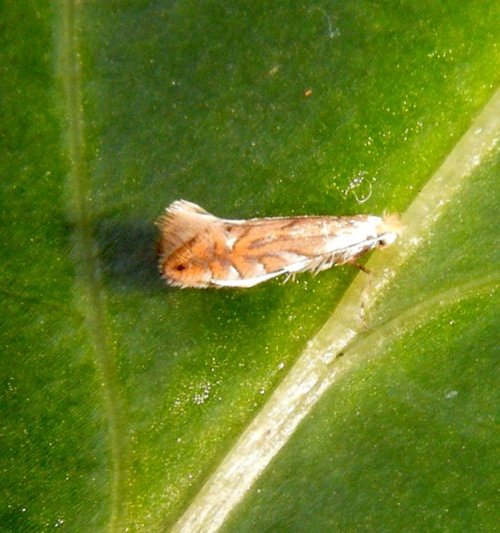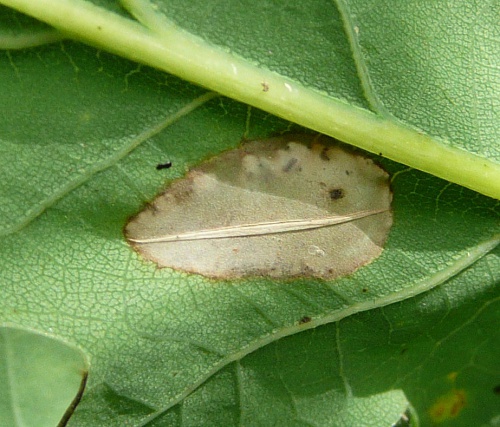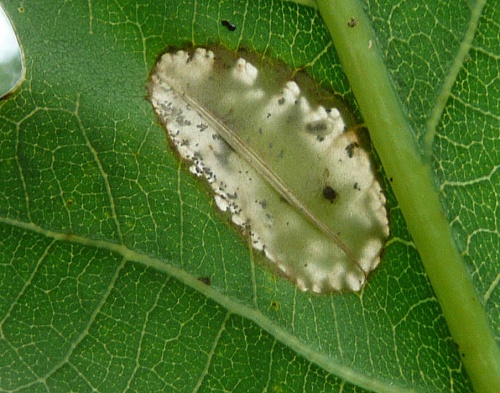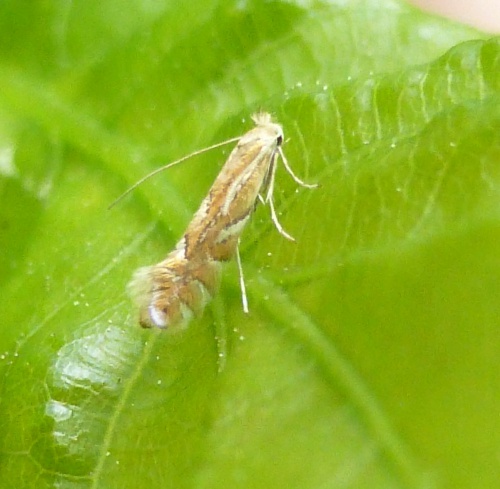Phyllonorycter quercifoliella
Common Oak Midget
Wingspan 7 to 9 mm. At first glance the adult can appear devoid of markings, but on closer scrutiny, the pale greyish strigulae can be seen, as can the diagnostic basal streak, which usually extends more than half the forewing length.
The leaf mines on oak can be searched for from late autumn through winter, and it is relatively easy to rear the adult. The species is difficult to identify from the mine alone, but the pupa has a distinctive arrangements of hooks at the very end, known as the 'cremaster'. There is a key and description of these on Bladmineerders.nl (see 'Further Information' link below) and photos at https://mothdissection.co.uk/species.php?Tx=Phyllonorycter_quercifoliella
Other Oak Phyllonorycter
Photograph adult, or frass covered cocoon when recording leafmine, or mine and pupal cremaster.
Areas where Oak is plentiful.
The moths are on the wing in April and May, and again in August and September.
The larval mine is a small blotch on the underside of a leaf of Oak.
Probably the commonest of the oak-feeding Phyllonorycters, this species is frequent throughout most of the British Isles. In the Butterfly Conservation’s Microlepidoptera Report 2011 this species was classified as common.
Occasional in Leicestershire and Rutland. L&R Moth Group status = C (very scarce resident or rare migrant).
Leicestershire & Rutland Map
Enter a town or village to see local records
MAP KEY:
Yellow squares = NBN records (all known data)
Coloured circles = NatureSpot records: 2025+ | 2020-2024 | pre-2020
UK Map
Species profile
- Common names
- Common Oak Midget
- Species group:
- Moths
- Kingdom:
- Animalia
- Order:
- Lepidoptera
- Family:
- Gracillariidae
- Records on NatureSpot:
- 119
- First record:
- 10/05/2012 (Calow, Graham)
- Last record:
- 21/07/2025 (Alton, John)
Total records by month
% of records within its species group
10km squares with records
The latest images and records displayed below include those awaiting verification checks so we cannot guarantee that every identification is correct. Once accepted, the record displays a green tick.
In the Latest Records section, click on the header to sort A-Z, and again to sort Z-A. Use the header boxes to filter the list.


